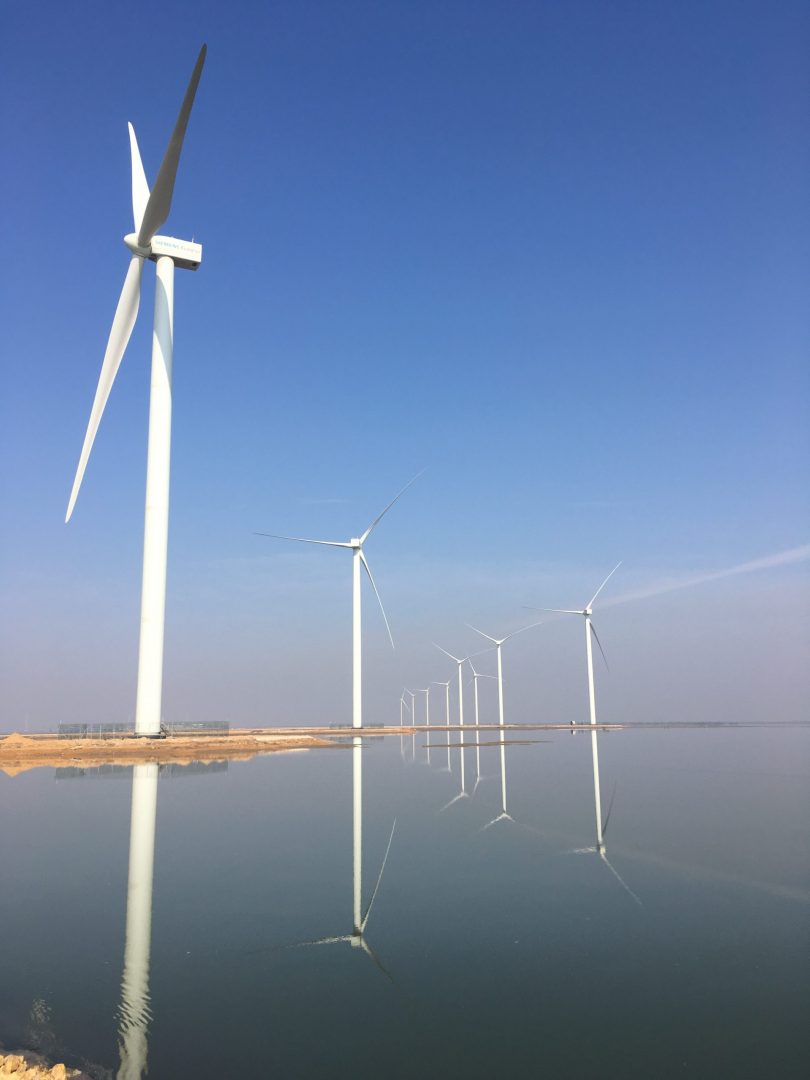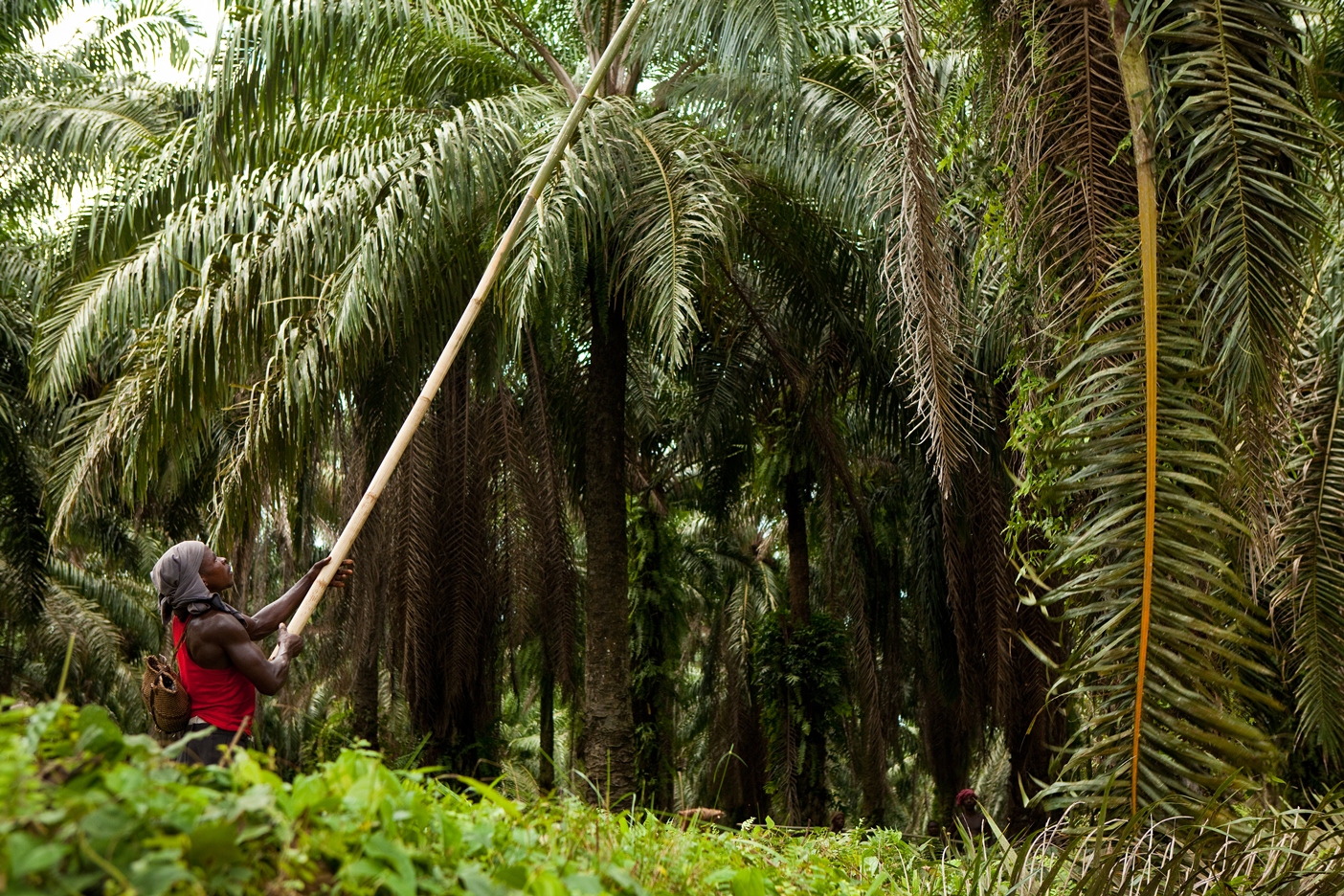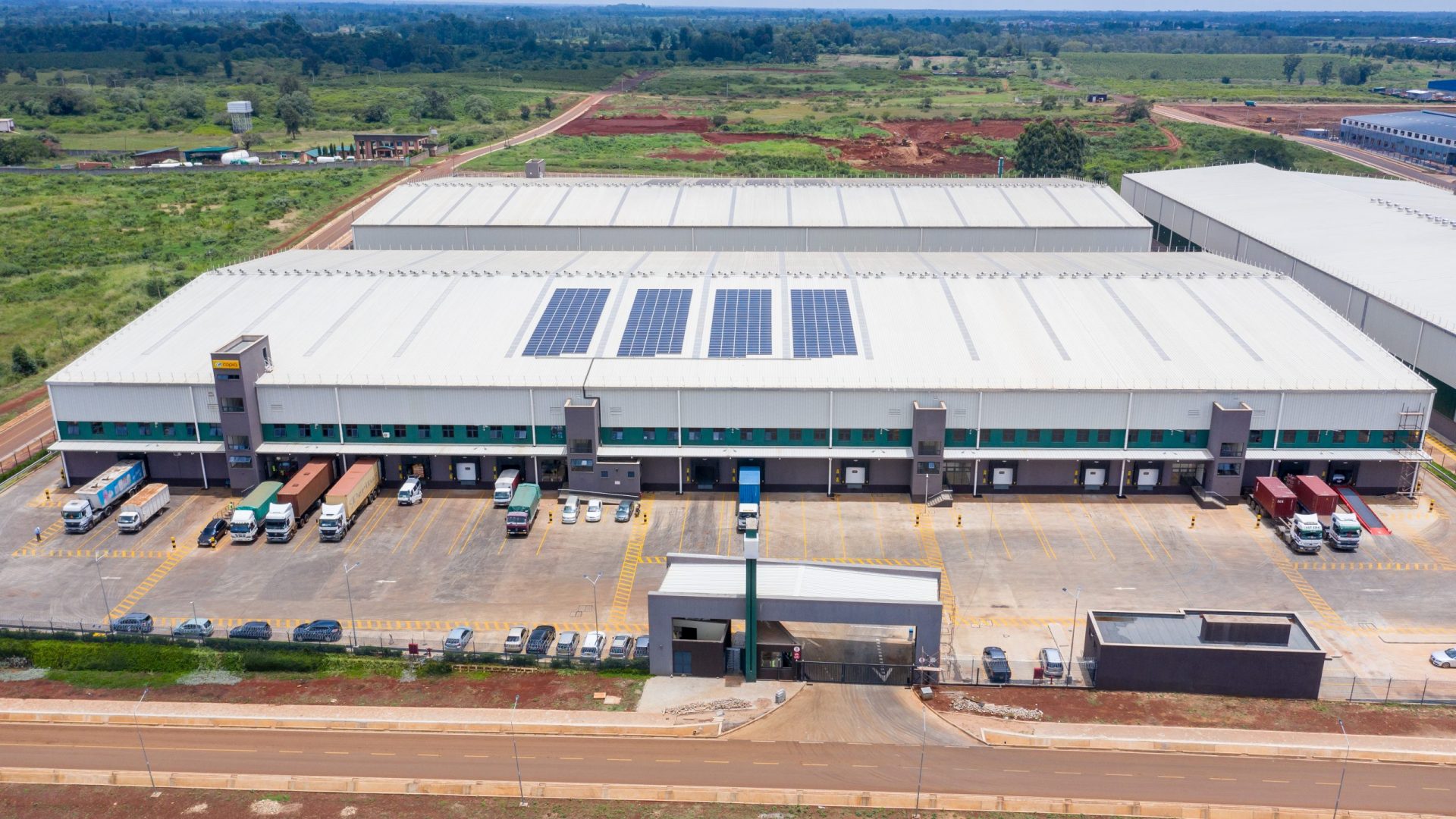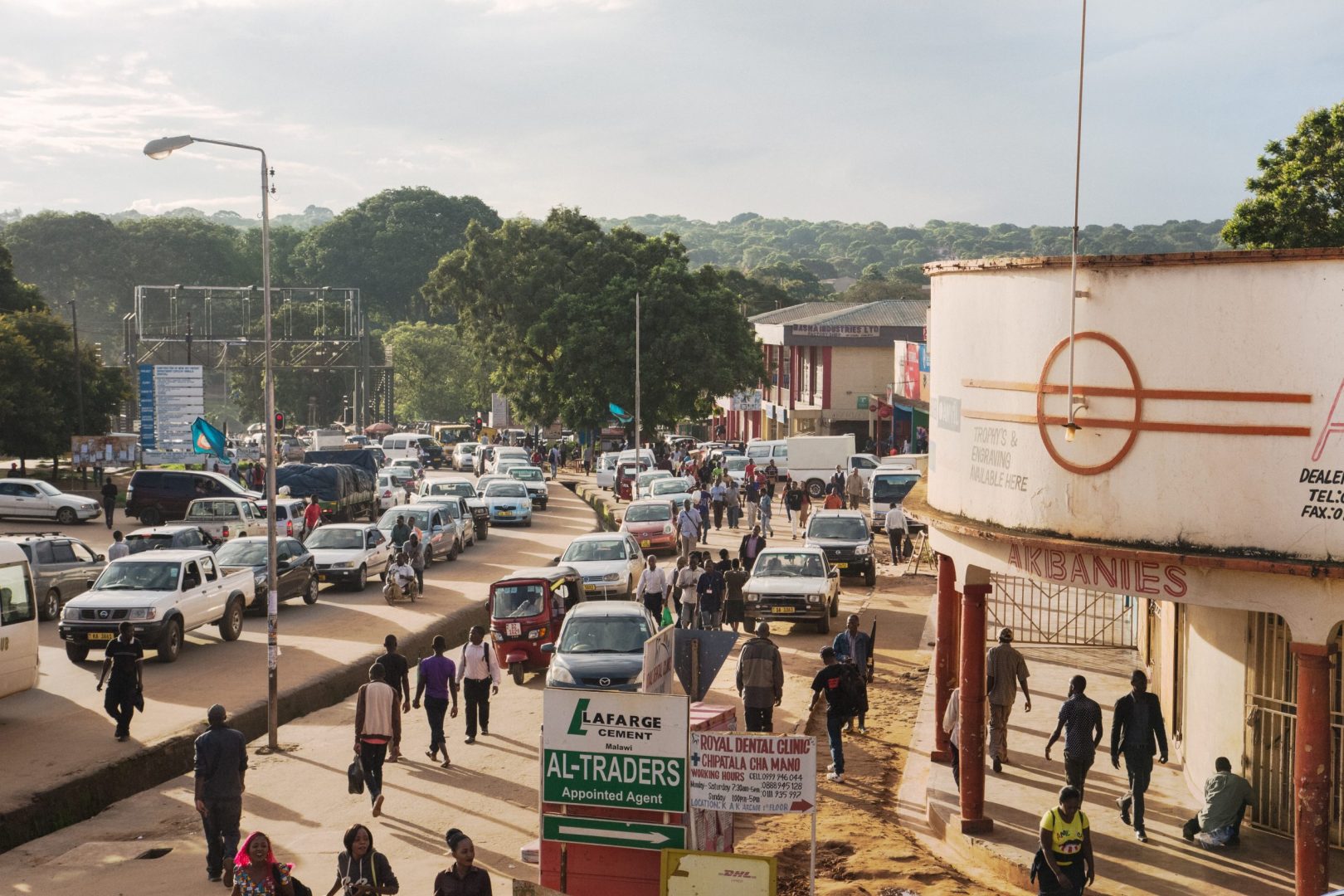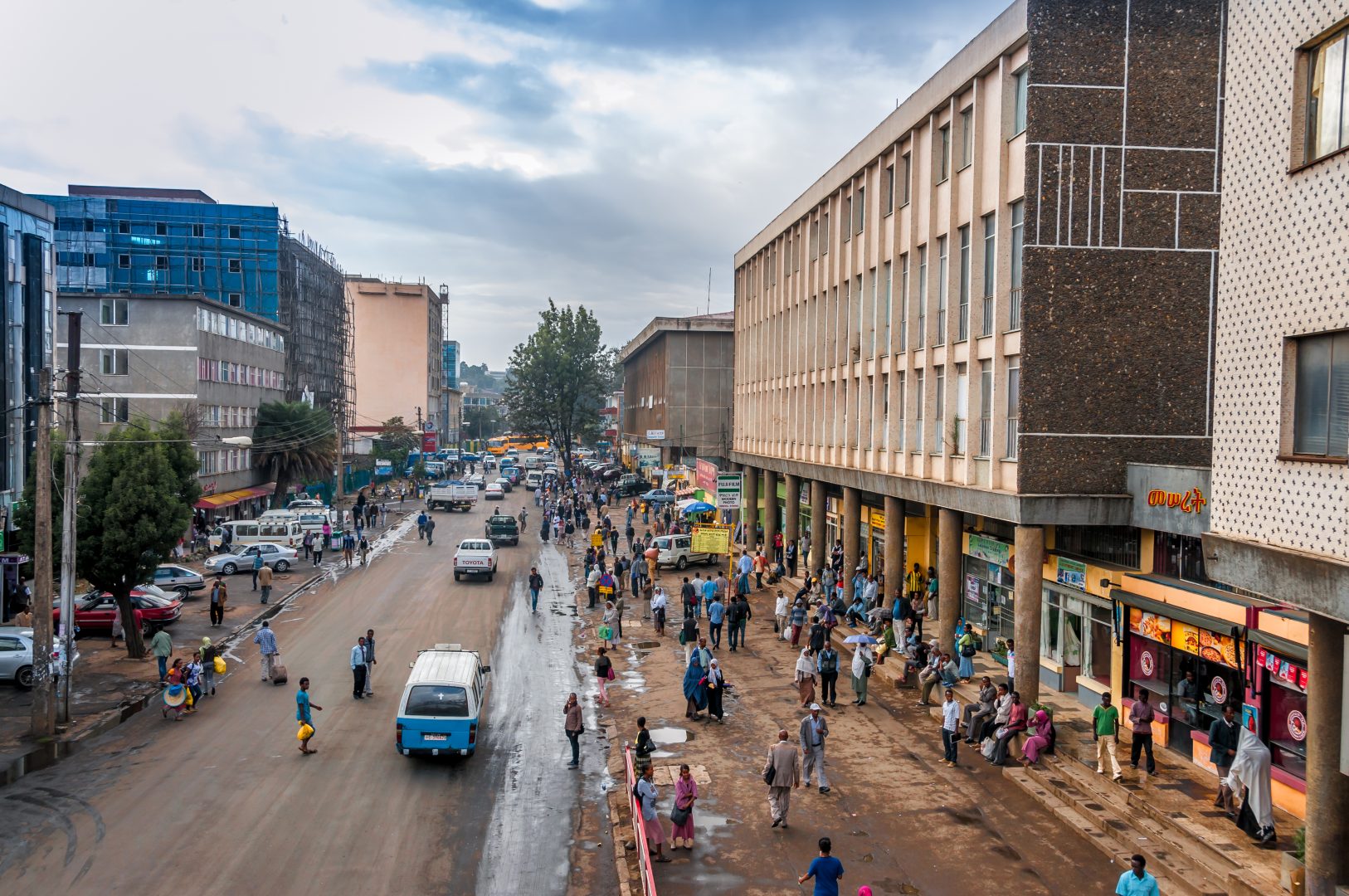What does impact mean to people reached by our investments?
If you drive through Lagos on any given morning, you’re likely to spot people in brightly coloured jumpsuits sweeping the kerbsides on the highways. The work is hard and dangerous. Cars speed past at top speeds of 100kph within feet of labourers as they sweep the inside lanes. Injuries and deaths are tragically frequent. The work is also unproductive and poorly paid, with reported payment as little as N5,000 ($11) per month.
The hardships of Lagos street sweepers present a microcosm of why development finance institutions like British International Investment exist. The underlying reason that people take up such work is the lack of alternative opportunities, and a major part of why we exist is our belief that impactful investments can create better opportunities and change lives.
In a recent publication we set out what impact means to us and how we put this into action. But an equally relevant question is what does impact mean to the people we are aiming to help? During a recent trip to Nigeria, I spoke to a small sample of people reached by investments from our Catalyst Portfolio to help answer this question.[1] The objective was to gain personal insights, backed up by larger-sample surveys, into if and how people affected by our investments had experienced changes, and what exactly impact means to them.
Impact = Markets that “work for us”
What alternative job options might be available to a Lagos street sweeper? The sector with the largest urban employment share in Nigeria is retail trade, and my first visit was to a company based in the Lagos suburbs called TradeDepot.[2] TradeDepot provides a platform that connects informal retailers – mostly one-person micro-businesses run by women – to convenient, consistent access to goods and financial services.
A 60 Decibels survey of over 200 users – 67 per cent of whom are from low-income households – found that 90 per cent reported an improvement in their quality of life due to TradeDepot.[3] Why? The reason is simple: TradeDepot makes it easier for them to do business. In the absence of a platform like TradeDepot, the work is arduous and inefficient. Stocking kiosks requires closing the business to travel into a central-Lagos market and purchase goods, and low cash flow and savings limit the ability to buy in bulk, meaning this process may have to be repeated several times per week. Retailers told me that shutting up shop harms their revenue, while transport costs – rapidly rising due to the recent tripling of the cost of petrol – eat into already thin margins and must be passed onto consumers.[4] The result is unproductive work due to supply chains that simply do not work for those at the bottom, both retailers and customers.
TradeDepot prices are not necessarily cheaper than the markets, but the overall impact on traders’ costs are largely positive. All those I spoke to reported increased incomes and a positive effect on the local community thanks to TradeDepot’s offering of a last-mile service that is otherwise lacking in supply chains for most retailers (more than half report no access to alternatives). Benefits relate not only to income. Some retailers shared that easier working lives directly help their mental health, confirmed by the 60dB survey in which reduced stress was the third most common explanation for improved quality of life.
The perceived impact of these benefits is significant. One retailer told me that “if TradeDepot stopped coming, some people will have to close their businesses”. Market inefficiencies do remain – interviewees spoke of occasional frustration with the availability of goods on the TradeDepot app – so part of the underlying issue (reliable access to stock) is not solved entirely. But interviews, coupled with independent surveys based on a much larger sample, suggest that TradeDepot is focusing on a problem that matters to peoples’ lives, and that it is on the right track in doing so.
Better functioning markets improve lives in a host of ways, including through increased incomes. But impact is also found in less obvious forms. As findings from other sectors also confirm, improvements to quality of life go beyond financial gain.
67%
of TradeDepot users are from low-income households
Impact= more inclusive business models
Not only are women more represented among TradeDepot users – more than 3 to 1 in the 60dB sample – but interestingly they are also more likely to report that TradeDepot has improved their lives (92 per cent vs. 82 per cent for men). Again, the voices of those whose lives we seek to improve can provide an explanation.
Evidence clearly shows that the burden of domestic work (chores, childcare, etc.) falls disproportionately on women, particularly in developing countries, and that the result is often a squeeze on women’s economic participation. This was an obstacle to economic participation keenly felt by female interviewees, as they felt that are only able to work if it fits around their childcare and other responsibilities. Many of them opened their kiosks – quite often attached to their homes – as a flexible means to an income, but the burdens of travelling to market constrained this flexibility as well as the profit necessary to make it worthwhile.
In the case of female TradeDepot users, impact meant creating the conditions that enabled them to operate their businesses in a way that suits them. As one interviewee put it: “only now can I both work and do the other things [necessary] to support my family.”
Improving prospects for underserved groups is not just about creating opportunities, but opportunities that suit their lifestyles and needs. For women, enhancing the flexibility of work can help to boost participation.
92%
of female customers report that TradeDepot has improved their lives
Impact= better quality jobs
Following my visit to Lagos I travelled to Kwara State in Western Nigeria where I visited Dayntee Farms – a poultry farm that aims to support local jobs and market development. As in most of Africa, poverty in Nigeria is predominantly a rural phenomenon, as poor connectivity and underinvestment often means that rural economies do not function in a way that creates enough opportunities and prosperity to go around.
In focus group discussions with Dayntee Farms employees the topic of alternative job opportunities came up, on which the discussants were very clear – there is always other work. But what they also made clear was that Dayntee Farms provides “better” jobs that, for them, had led to better lives. Unanimously they reported higher incomes that have increased purchasing power, enabling them to afford things that they couldn’t previously (the most cited was children’s school fees). Job stability and consistency of income had also reportedly improved, with reports of employment contracts being a first in an area where seasonal, casual labour is common. The combination of opportunities, adequate earnings and stability and job security are key features of what distinguishes so called “decent work”. While they noted room for improvement, particularly around working hours, all employees felt that Dayntee jobs were better than alternative options (with most reporting “much better”).
The better opportunities provided by Dayntee reflect the process of job “upgrading” that is critical to impact, as it is both a driver and an outcome of economic development. As investment and growth enable the movement into more productive types of work, workers’ incomes and skills increase which in turn stimulates demand and further opportunities. For this process to work at scale, a lot of forces need to come together – including policies, infrastructure, investment, etc. – but the general consensus among the employees I spoke to was that Dayntee Farms enabled progress in the right direction.
Impact means ‘good’ jobs, but what is a good job? International labour standards are important, but they cannot tell you how much better a job is than available alternatives. Understanding impact requires understanding the ‘depth’ of change (one of the widely used five dimensions of impact), and this in turn requires understanding the context.
Impact= prospects
Employees also voiced their views of the positive impact of Dayntee Farms on their communities. The main channel through which this occurred was reduced local unemployment and poverty, with both groups unanimously agreeing that the most important tool in tackling local poverty was jobs. One participant summed up the groups’ views on how these employment benefits spread: “Dayntee creates markets for things that people can sell, so we see our neighbours benefitting. Not just the ones who work here.” Responses revealed that a large share of local trading centres on poultry products, and that this activity has grown in line with the expansion of Dayntee’s business.
Our discussions centred not only on current opportunities, but equally future prospects. The development of new skills was consistently reported, ranging from computer skills to animal rearing, food safety standards to good manufacturing practice (GMP). There was a strong sense of optimism, particularly among the younger employees, that the abilities they were accumulating were a chance to “establish” themselves. Of the younger employees – with an average age of 25 – all reported the ambition to start their own business. Interestingly, most of these wanted to start a business that was aligned with the market opportunities created by Dayntee (e.g. a catering business), revealing a perception of prospects created by Dayntee both within and outside the business.
The full extent of impact can shape the prospects of whole communities, both now and in the future. Investments that catalyse markets can have an important short-term effect that extends beyond a companies’ employees, but it can also create a trajectory of improved prospects for the future too.
The businesses that we invest in are a means to an end – the end is driving development and making peoples’ lives better. The case studies here from our Catalyst portfolio, through which we set ourselves a higher bar for impact in return for a flexible appetite on risk, offer a basic account of some of the ways in which we benefit people and planet. But impact can happen in many ways. Sometimes it may be more direct and easily understood and measured, for example, ‘standard’ impact channels like job creation in a business like Dayntee Farms. Other times it may be less explicit and more difficult to disentangle, like reducing the stress of TradeDepot traders. But across all types of investment, the voices of those we are trying to help are an essential component of understanding what impact looks like. It is important that we listen to them.
Written by Steven Ayres, Research and Policy Executive, British International Investment
[1] Interviews with 7 TradeDepot users (5 female; 2 male) and focus groups with a total of 15 Dayntee Farms employees (8 female; 7 male) selected at random.
[2] Accounting for 14 per cent of employed Nigerians (65 per cent of which are women)
[3] For the purpose of our Impact Score and monitoring we define low-income as people living below the international poverty line of $6.85 (PPP, 2017) a day. $6.85/day is an international poverty line as defined by the World Bank. It is based on 2017 purchasing power parities (PPPs).
[4] See article: https://www.reuters.com/world/africa/nigeria-triple-petrol-prices-after-president-says-subsidy-end-2023-05-31/

